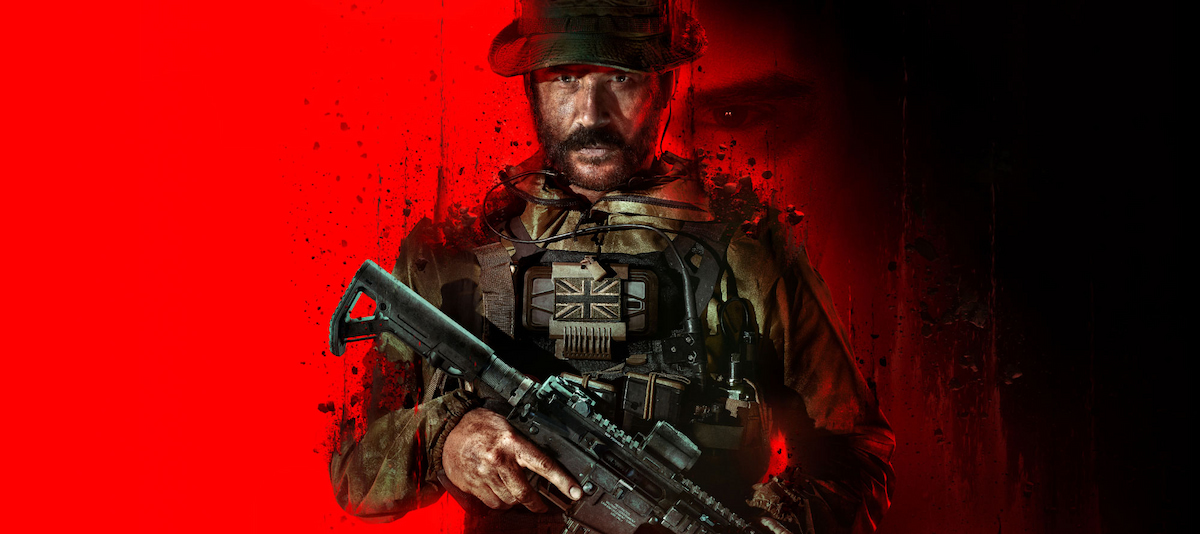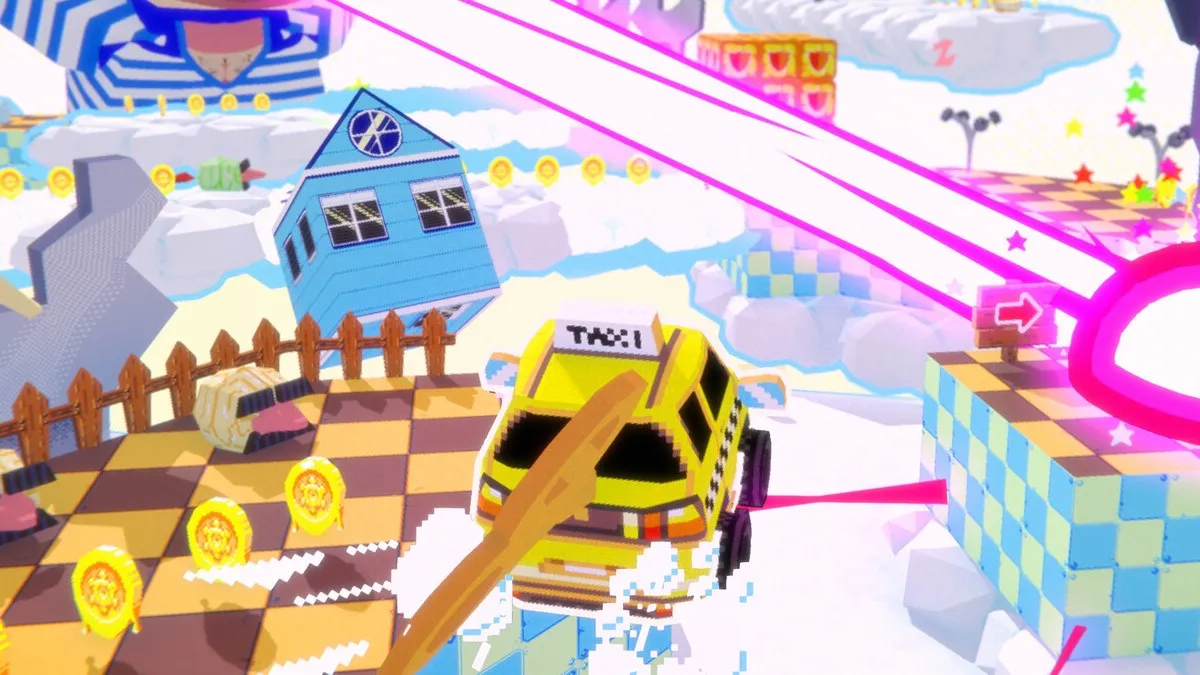In 1979, Stephen King published The Long Walk under the pen name Richard Bachman. The Long Walk isn’t the first book casual fans think of when they think of Stephen King – or the second, third, fourth, fifth, etc. – so you could say it’s not particularly well-known in comparison to something like The Shining or It.
Given the hustle and bustle of everyday life, not everyone has the time to sit down and read through King’s books either, so many take in King’s stories through film and TV adaptations.
Unfortunately, The Long Walk has yet to receive any such adaptation (though they are working on it) meaning the only way to enjoy it is by reading it or by listening to the audiobook version of it. Perhaps this is why The Long Walk isn’t top of the list when people talk about the battle royale genre.
It makes sense, though it’s a shame as The Long Walk has a lot to offer when it comes to a unique interpretation of the battle royale genre. The Long Walk isn’t a story of guns and combat. Instead, it’s exactly as the book’s title suggests… a long walk.
It may sound boring to read about one hundred teenage boys walking through Maine, but honestly? It’s fascinating. It’s the kind of book that’s hard to put down, especially after the first death occurs.
Speaking of which, there’s plenty of death in the book to make it feel action-packed if that’s what you’re looking for, it’s not just people walking and talking. That said, the focus of The Long Walk isn’t solely about the action or the death of the competition’s participants either.
It’s about who is dying, how that death affects other characters, what would inspire teenagers to enter such a competition in the first place, and what really happens to the one that survives.

Similar to the 1999 Japanese book Battle Royale by Koushun Takami and the film adaptation from the year 2000 – also called Battle Royale – The Long Walk focuses on the characters themselves, compelling you to care more about what happens to them.
Getting to know characters in The Long Walk like Olson, Baker, and McVries as Garraty befriends them, you don’t want them to die. You keep reading with the hope that maybe they’ll all fight back and escape somehow, but one by one the numbers keep dwindling until there’s only one left standing.
Comparatively, in the 2000 film Battle Royale (minor spoiler here for the film), three people are able to leave the island. It’s in these differences that The Long Walk manages to feel even bleaker than other battle royale examples because of how futile everything feels once the participants begin the Walk.
There’s simply no escape from it.
And as mentioned before, the teenagers competing against one another aren’t shooting each other with guns. It’s a long, slow, drawn out process where one by one the bodies (and minds) of the contestants gradually fall apart. Honestly, Battle Royale and The Long Walk both offer an inside look at how brutal battle royale games really are, not just on the body, but the mind as well.
I would love to spend the rest of this feature just praising Battle Royale (the book and film) as I love them both, but The Long Walk came first so I’ll be talking about it first in this article.
In a future article, I’ll talk solely about Battle Royale – including how Battle Royale author Koushun Takami is a fan of The Long Walk and even took some inspiration from it – as noted in a Polygon article from Sam Greszes.
With that aside, if you haven’t read The Long Walk, don’t intend to read it, but want to know what it’s about, the rest of this feature is for you. If you want to read the book and don’t want it spoiled, I recommend you avoid reading the rest of this feature as it’s basically spoiler city.
Note: The rest of this article features spoilers for The Long Walk. If you haven’t read the book and want to, please don’t read past this point!
Trigger Warning: In talking about The Long Walk and just how bleak it is, I’ll be including excerpts from the book that some may find disturbing along with mentions of depression, suicide, trauma, and other similar subject matter that can be hard to read.
Stephen King Wrote a Twisted Battle Royale Story Back in 1979

“Every year, on the first day of May, one hundred teenage boys meet for an event known throughout the country as “The Long Walk.” Among this year’s chosen crop is sixteen-year-old Ray Garraty.
He knows the rules: that warnings are issued if you fall under speed, stumble, sit down. That after three warnings… you get your ticket. And what happens then serves as a chilling reminder that there can only be one winner in the Walk — the one that survives…”
The Long Walk teases you with that description, dancing around the fact that “getting your ticket” means death. There can only be one winner, after all. As you open the book, you’re introduced to main character Ray Garraty as he’s getting dropped off at the Walk’s starting point by his mother.
It’s here that Garraty first interacts with some of his fellow contestants, many of whom he’ll later befriend. The Walk takes a gruesome psychological toll on contestants, as is steadily revealed throughout the book.
It’s something the contestants themselves don’t really consider much as they’re talking to one another about their approach to the Walk (though it is brought up as the contestants talk about past Walks they’ve seen).
Strategy for the Walkers is typically about conserving energy, using your three warnings strategically, picking the right clothing and shoes, and so on. The mental health aspect is less obvious, and harder to plan for. Because of this, friendships become essential for survival.
During the Walk, contestants will encourage friends to keep going, share food rations, and one even takes to writing down in a notebook things for the winner to do for the families of other contestants that die during the Walk.
One of the reasons why Garraty survives as long as he does is because he’s helping others, and others are helping him. I firmly believe that – and as mentioned above this is just me spoiling the entire book at this point – Garraty wouldn’t have won the Walk had he not formed friendships with other contestants.
And when I say Garraty “wins” the Walk, keep in mind that winning isn’t something you want. As Jud Crandall says in another Stephen King classic, Pet Sematary, “Sometimes dead is better.”
Seriously, at the end of the walk, Garraty’s mental state is in shambles and he isn’t aware that he’s won at all. The final page of The Long Walk features an ending that you almost wish you hadn’t read, even though it’s the outcome you probably wanted in the first place.
You want the main character you’ve been following from the start to win, not just for them, but also so you can find out what happens at the end. That’s what the main character wants too, right? To see what happens? Well, here’s what happens…
“Behind him, they finished by shooting the already-dead Stebbins, and now there was only him, alone on the road, walking toward where the Major’s jeep had stopped diagonally across the white line, and the Major was getting out, coming to him, his face kind and unreadable behind the mirror sunglasses.
Garraty stepped aside. He was not alone. The dark figure was back, up ahead, not far, beckoning. He knew that figure. If he could get a little closer, he could make out the features. Which one hadn’t he walked down? Was it Barkovitch? Collie Parker? Percy? What’shisname? Who was it?
‘GARRATY!’ the crowd screamed deliriously. ‘GARRATY, GARRATY, GARRATY!’
Was it Scramm? Gribble? Davidson? A hand on his shoulder. Garraty shook it off impatiently. The dark figure beckoned, beckoned in the rain, beckoned for him to come and walk, to come and play the game. And it was time to get started. There was still so far to walk.
Eyes blind, supplicating hands held out before him as if for alms, Garraty walked toward the dark figure. And when the hand touched his shoulder again, he somehow found the strength to run.”
All of the time and energy Garraty put into the Walk is ultimately for nothing. And what is the point of the Walk itself? Does it really have a point? The book makes it clear the answer to this is also no, not really.
The Long Walk is nothing more than a form of entertainment in the book’s dystopian, alternate reality. It’s not designed for the participants, it’s designed for the viewers. The Long Walk at its core is actually quite similar to another one of King’s Bachman books, The Running Man.
It would take me a long time to sit and talk about how both books are ultimately trying to convey similar points, so I’ll save that for another time. To keep it short, The Running Man has a main character that risks death to play a game where they may be able to win money to help support their family.
The Long Walk features similar contestants who enter the game because they’re hoping to win money, like Scramm. To be more specific, the book refers to the “Prize” (always with a capital P) as being, “Everything you want for the rest of your life.”
On the surface, you’d think that sort of Prize would be the driving force to enter the Walk for all of the participants like it is for Scramm, but this is steadily revealed to not be the case. Unfortunately, many of the characters struggle with something people with depression may be familiar with.
The feeling of wanting to die, but not wanting to actually take your own life. The Long Walk is perfect for that as one could enter under the guise of wanting to win the Prize, while secretly not caring if you lose.
When I say The Long Walk is bleak, I mean it is extremely bleak to the point where it can be hard to read, especially if you have depression or have gone through trauma similar to what some of the contestants have endured.
Plus, the Walk itself is hard to read, and it’s up there for me as one of the worst ways to die. Contestants need to maintain a walking speed of four miles per hour at all times, no stopping, and if they fall below that they get a warning. Three warnings and you’re dead.
You can get rid of warnings after an hour, so if you walk two hours you can walk off two warnings. However, this just drags the Walk on longer. The longer the contestants walk and become fatigued, the more they fall apart mentally.
Keep in mind too that contestants basically have to use the bathroom while they’re walking and they have to sleep while standing up, still walking, all while maintaining the pace of four miles per hour.
If the majority of contestants “got their ticket” early by racking up three warnings, they would suffer less. But the Walk is a show, a spectacle, a source of entertainment. It’s designed to make sure the contestants keep going, keep walking, to the point of breaking, all for the sake of putting on a good show.
It’s horrifying and that’s the point, not just of the book itself but in my opinion… the battle royale genre as a whole. I’ll end this super long section on the book with an excerpt of one (and there are many) of the most heartbreaking portions of The Long Walk I came across, when Garraty says goodbye to his friend Baker.
“Baker put a hand on Garraty’s shoulder, and Garraty began weeping uncontrollably. It seemed that his heart would burst out of his chest and weep its own tears. Baker said, ‘Lead-lined.’
‘Walk a bit longer,’ Garraty said through his tears. ‘Walk a little longer, Art.’
‘No — I can’t.’
‘All right.’
‘Maybe I’ll see you, man,’ Baker said, and wiped slick blood from his face absently. Garraty lowered his head and wept. ‘Don’t watch ‘em do it,’ Baker said. ‘Promise me that, too.’ Garraty nodded, beyond speech. ‘Thanks. You’ve been my friend, Garraty.’
Baker tried to smile. He stuck his hand blindly out, and Garraty shook it with both of his. ‘Another time, another place,’ Baker said. Garraty put his hands over his face and had to bend over to keep walking.
The sobs ripped out of him and made him ache with a pain that was far beyond anything the Walk had been able to inflict. He hoped he wouldn’t hear the shots. But he did.”
Conclusion

Image Source: Bookshop Apocalypse
At its core, the battle royale genre has never been about the action itself. Battle royale stories are stories of survival horror. Stephen King is a master of horror, so it’s no surprise that The Long Walk (despite being one of his first books) is so effective at making the reader feel uneasy.
The closest I’ve felt to being uneasy in a battle royale game was when PlayerUnknown’s Battlegrounds first released. I didn’t know what to expect in the game, so I spent a large amount of time hiding from enemy players in bushes and buildings. I obviously don’t play PUBG like that now, but it’s jarring when you first start playing.
I think that’s what I’ve been missing from battle royales the most lately, that sense of unease. I personally believe that battle royales should have some element of horror to them, and I would love to see more battle royale games pop up in the future that touch upon the darker aspects of the battle royale genre.
Do I want games that feel like The Long Walk being made? No, absolutely not. I don’t think my heart could take the heartbreak, it wouldn’t be very fun. However… psychological horror games mixed with battle royale gameplay, an interesting, well-written story, and great characters? Yes, please to those!
Related: Mundaun is Gaming’s Take on Art House Horror




